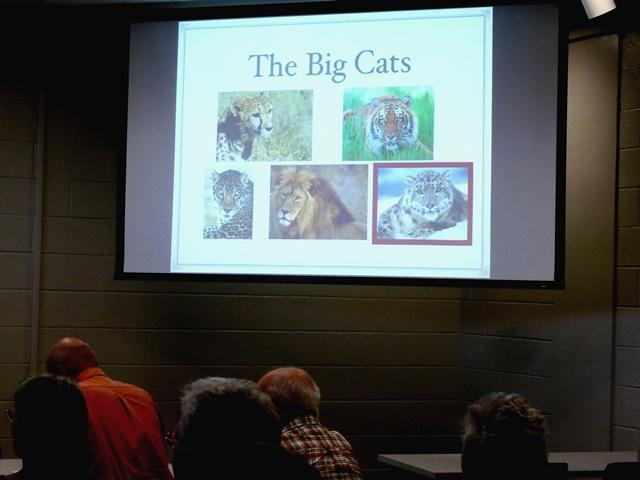Leopards and Jaguars; Elephants and Rhinos [F-14-35]
| Presenter: | John McDonald |
|---|---|
| Location: | SUNY Potsdam: Maxcy 104 |
| Classes: | 4 Sessions 1.5 hours |
| Dates: | Tue 3:00 PM 09/16, 09/23, 09/30, 10/07 |
| Status: | CLOSED |
Print Info
In the first half of this course we will be studying leopards and jaguars, discussing their history and evolution, as well as their similarities and differences; in the second half of this course we will turn our attention to the current two largest terrestrial animals: elephants (up to 12’ and over 15,000 lbs.) and rhinos (up to 10,000 lbs.). We will look at the human interaction and conflicts with all four of these animals, as well as the geopolitical influences which will save them or condemn them to extinction.
- Session 1. Leopards have the largest range of all of the big cats from Siberia, South and West Asia to sub-Sahara Africa. The species’ success is due to its opportunistic hunting behavior, notorious for its stealth.
- Session 2. Jaguars are the largest of the big cats after lions and tigers and range from the southwest United States through Mexico and Central America, and south to Paraguay and northern Argentina.
- Session 3: Elephants are one of the most intelligent animals living in familial groups. They have a rich history with humans. The African elephant is found in sub-Saharan Africa; the Asian elephant’s current range is in South and Southeast Asia.
- Session 4: Rhinos are reclusive animals but can be very aggressive when disturbed. They have a relatively small brain and poor eyesight, but a well-developed sense of smell and hearing. Five distinct species of Rhinoceros exist: two in sub-Saharan Africa and three in Asia.
Having retired from IBM and Arrow Electronics, John Mc Donald is now able to pursue his lifelong interest in African animals. In college John worked in primate research. After college, he spent some time with lion and tiger circus trainer Dave Hoover. Following that, he conducted some field research on Adamson’s (of Born Free fame) lions in Kenya. For the past three years John has spent a month at a research center in Nambia working as a volunteer with wild cheetahs. During these stays in Africa he spent considerable time learning about other big cats. In addition, he enjoyed observing elephants and rhinos in Etosha National Park and working with animal behavioral scientists at a private rhino reserve.

